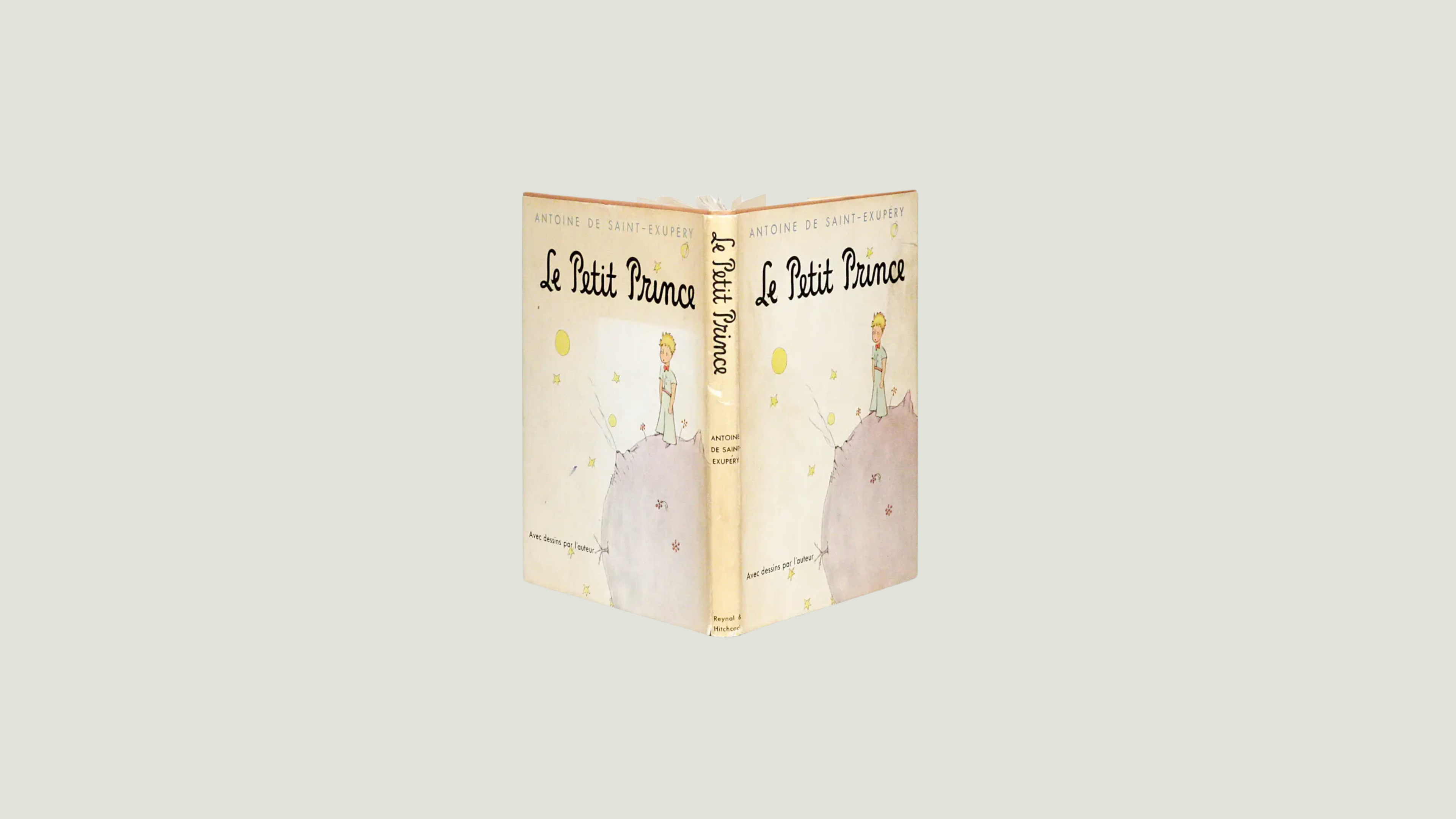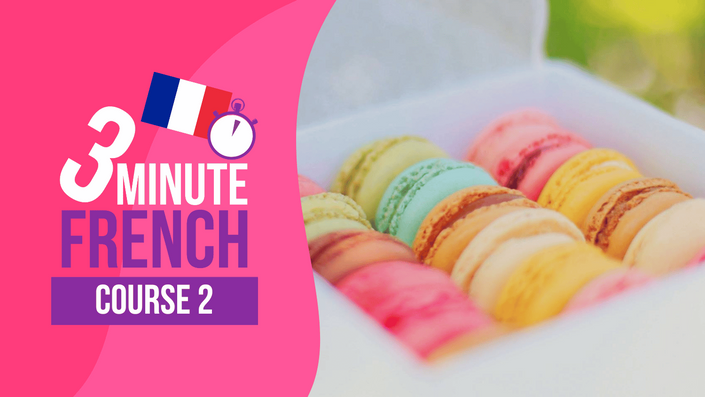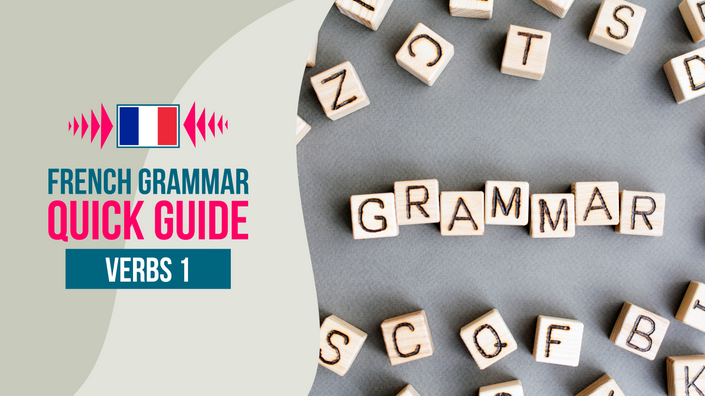
Adjectival agreement in French
In French, you have to make adjectives agree to the noun they’re describing. But what does that mean?
What’s an adjective?
Adjectives describe nouns, and in French, nouns can be either singular or plural, and masculine or feminine.
le chien – the dog (masculine singular)
la maison – the house (feminine singular)
les chiens – the dogs (masculine plural)
les maisons – the houses (feminine plural)
As I said, adjectives describe nouns. In English, it doesn’t matter what noun you describe; the adjective always stays the same. For example, look how the word “good” stays the same in all the example sentences below:
The wine is good
The food is good
The children are good
The cars are good
It doesn’t matter what the noun is; in English, the word “good” stays the same.
In French, however, if we were to say those sentences, the word for “good”, which is “bon” would change in each sentence:
Le vin est bon – the wine is good
La nourriture est bonne – the food is good
Les enfants sont bons – the children are good
Les voitures sont bonnes – the cars are good
You’ll see how the ending of the adjective “bon” changes slightly depending on the type of noun it’s describing. This is called “agreeing the adjective”.
Agreeing the adjective
There are rules for how to agree the adjective in French. If you were to look in a dictionary for any adjective, the version you find is the one you can use to describe masculine singular nouns, and then we change it if we want to describe feminine nouns or plural nouns. Let’s have a look at what those changes are:
MASCULINE SINGULAR NOUN
adjective doesn’t change
MASCULINE PLURAL NOUN
add an S to the end of the adjective
FEMININE SINGULAR NOUN
add an E to the end of the adjective
FEMININE PLURAL NOUN
add an ES to the end of the adjective
Let’s have a look at an example of this in use with the adjective “parfait”, which means “perfect”.
MASCULINE SINGULAR NOUN
le poulet est parfait – the chicken is perfect
MASCULINE PLURAL NOUN
les poulets sont parfaits – the chickens are perfect
FEMININE SINGULAR NOUN
la dinde est parfaite – the turkey is perfect
FEMININE PLURAL NOUN
les dindes sont parfaites– the turkeys are perfect
Adjectivesending in an “e”
Now, those four rules are general rules that you can apply to most adjectives. There are adjectives that don’t follow these rules, which do their own thing. When you come across irregular adjectives, it’s a good idea to learn how they change. In the 3 Minute French courses, when we learn irregular adjectives, we always learn their unique feminine and plural versions, too.
There is a group of adjectives that has a more simplified set of rules, and that’s adjectives that end in an “e”. If an adjective already ends in an “e”, in French, you don’t need to add an extra “e” to make it feminine. For example, “fantastique” means “fantastic”. Let’s have a look at the different versions of that adjective:
MASCULINE SINGULAR NOUN
le poulet est fantastique – the chicken is fantastic
MASCULINE PLURAL NOUN
les poulets sont fantastiques – the chickens are fantastic
FEMININE SINGULAR NOUN
la dinde est fantastique – the turkey is fantastic
FEMININE PLURAL NOUN
les dindes sont fantastiques – the turkeys are fantastic
You can see how you still have to add an “s” to make it plural, but the masculine and feminine versions are the same.
Another adjective that ends in an “e” is “terrible”:
MASCULINE SINGULAR NOUN
le poulet est terrible – the chicken is terrible
MASCULINE PLURAL NOUN
les poulets sont terribles – the chickens are terrible
FEMININE SINGULAR NOUN
la dinde est terrible – the turkey is terrible
FEMININE PLURAL NOUN
les dindes sont terribles– the turkeys are terrible
Let's practise
See if you can say these sentences in French. Firstly, here’s a little vocabulary you might need.
Masculine nouns
restaurant – restaurant
boy – garçon
chicken – poulet
child – enfant
wine – vin
dog – chien
Feminine nouns
house – maison
girl – fille
turkey – dinde
carrot – carotte
car – voiture
door – porte
Adjectives
big – grand
small – petit
fantastic – fantastique
perfect – parfait
red – rouge
terrible – terrible
black – noir
noisy – bruyant
- The boy is small
- The restaurant is big
- The car is noisy
- The car is red
- The children are perfect
- The girl is small
- The turkey is fantastic
- The carrots are fantastic
- The dogs are black
- The door is black
- The houses are big
- The dog is black
- The girls are small
- The boys are small
- The restaurants are big
- The children are noisy
- The house is big
- The wine is terrible
- The doors are black
- The chicken is fantastic
ANSWERS
- Le garçon est petit
- Le restaurant est grand
- La voiture est bruyante
- La voiture est rouge
- Les enfants sont parfaits
- La fille est petite
- La dinde est fantastique
- Les carottes sont fantastiques
- Les chiens sont noirs
- La porte est noire
- Les maisons sont grandes
- Le chien est noir
- Les filles sont petites
- Les garçons sont petits
- Les restaurants sont grands
- Les enfants sont bruyants
- La maison est grande
- Le vin est terrible
- Les portes sont noires
- Le poulet est fantastique
In context
It’s always good to look at rules in context, because it helps to solidify them in your mind. Let’s read through a few paragraphs from chapter 20 of Le Petit Prince (The Little Prince) by Antoine de Saint-Exupéry, and focus on any adjectives that appear in the extract.

CHAPITRE XX
Mais il arriva que le petit prince, ayant longtemps marché à travers les sables, les rocs et les neiges, découvrit enfin une route. Et les routes vont toutes chez les hommes.
- Bonjour, dit-il.
C’était un jardin fleuri de roses.
- Bonjour, dirent les roses.
Le petit prince les regarda. Elles ressemblaient toutes à sa fleur.
- Qui êtes-vous? leur demanda-t-il stupéfait.
- Nous sommes des roses, dirent les roses.
- Ah! fit le petit prince...
Et il se sentit très malheureux. Sa fleur lui avait raconté qu’elle était seule de son espèce dans l’univers. Et voici qu’il en était cinq mille, toutes semblables, dans un seul jardin!
« Elle serait bien vexée, se dit-il, si elle voyait ça… elle tousserait énormément et ferait semblant de mourir pour échapper au ridicule. Et je serais bien obligé de faire semblant de la soigner, car, sinon, pour m’humilier moi aussi, elle se laisserait vraiment mourir… »
Puis il se dit encore: « Je me croyais riche d’une fleur unique, et je ne possède qu’une rose ordinaire. Ça et mes trois volcans qui m’arrivent au genou, et dont l’un, peut-être, est éteint pour toujours, ça ne fait pas de moi un bien grand prince… » Et, couché dans l’herbe, il pleura.
petit — small
fleuri — covered in flowers
stupéfait — astounded
malheureux — unhappy
seul — alone
vexé — offended
obligé — obliged
riche — rich
unique — only
ordinaire — ordinary
éteint — turned off
grand — big
couché — lying
Let’s quickly take each of those adjectives, and look at them in their four forms. We’ll do masculine singular, feminine singular, masculine plural and then feminine plural.
PETIT = petit, petite, petits, petites
FLEURI = fleuri, fleurie, fleuris, fleuries
STUPÉFAIT = stupéfait, stupéfaite, stupéfaits, stupéfaites
MALHEUREUX = malheureux, malheureuse, malheureux, malheureuses
SEUL = seul, seule, seuls, seules
VEXÉ = vexé, vexée, vexés, vexées
OBLIGÉ = obligé, obligée, obligés, obligées
RICHE = riche, riche, riches, riches
UNIQUE = unique, unique, uniques, uniques
ORDINAIRE = ordinaire, ordinaire, ordinaires, ordinaires
ÉTEINT = éteint, éteinte, éteints, éteintes
GRAND = grand, grande, grands, grandes
COUCHÉ = couché, couchée, couchés, couchées
Get three courses in one bundle, and save money
-

Courses 1, 2 & 3
Get this bundle -

Courses 4, 5 & 6
Get this bundle -

Courses 7, 8 & 9
Get this bundle
Course 2, Building Structures and grammar courses
-

Course 2
Get this course -

Building Structures
Get this course -

Quick Guide
Get this course
All my French courses

Building Structures in French
Quick Guides
French grammar
Essential French grammar - Future | Conditional | Imperfect
All my Spanish courses

Building Structures in Spanish
Quick Guides
Spanish grammar
Essential French grammar - Future | Conditional | Imperfect
All my German courses

Building Structures in German
Quick Guides
German grammar
Essential French grammar - Future | Conditional | Imperfect
All my Italian courses

Building Structures in Italian
Quick Guides
Italian grammar
Essential French grammar - Future | Conditional | Imperfect
All my Portuguese courses

Building Structures in Portuguese
Quick Guides
Portuguese grammar
Essential French grammar - Future | Conditional | Imperfect






